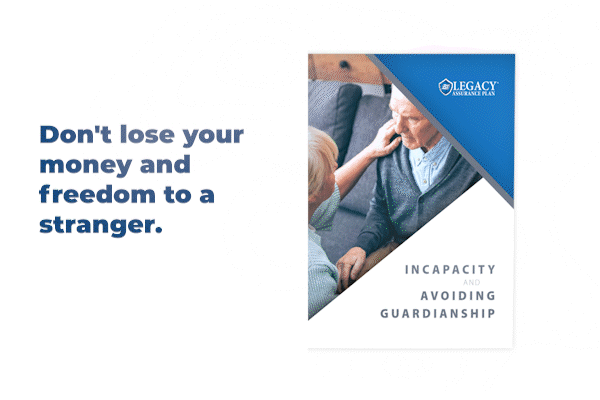Guardianships, also known as conservatorships in some jurisdictions, are legal arrangements that grant an individual or entity the authority to make decisions on behalf of an incapacitated person, referred to as the ward.
The process of establishing a guardianship typically involves several steps and varies depending on the specific laws and regulations of each jurisdiction. To initiate a guardianship proceeding, interested parties or concerned individuals may file a petition with the probate court in the ward's jurisdiction.
The petitioner usually seeks to demonstrate that the potential ward lacks sufficient capacity to manage their personal and financial affairs due to physical or mental limitations. The court then evaluates the evidence presented and makes a determination on whether guardianship is necessary.
In most cases, before granting a guardianship, the court will require medical evaluations or assessments from health care professionals to validate the alleged incapacity of the proposed ward. These evaluations aim to provide objective evidence regarding the individual's mental state, cognitive abilities and overall health status.
Once it is established that a guardianship is indeed necessary for an individual's well-being and self-protection against financial exploitation or other forms of abuse, the court appoints a guardian. The appointed guardian can be a family member or a professional guardian if no suitable family member is available.
This decision is made based on factors such as competency, commitment to acting in the best interest of the ward, familiarity with their needs and wishes, financial stability and family dynamics. It is important to note that while guardianships are intended to protect vulnerable individuals from abuse and exploitation by ensuring that their assets are managed responsibly, there have been unfortunate instances where abusive caregivers have taken advantage of this power dynamic for personal gain.
Therefore, it becomes crucial for courts overseeing these proceedings to exercise due diligence when selecting appropriate decision-makers who will act faithfully in safeguarding both finances and general welfare.
What kinds of authority do guardians have over their wards?

Once appointed by a probate court, guardians typically have wide-ranging authority over their wards.
In terms of personal care and health-related decisions, guardians typically have the power to make choices concerning medical treatment, living arrangements and daily activities. This authority extends to making decisions about the ward's living situation, including choosing an assisted living facility or nursing home if necessary. Financial authority is another key aspect of a guardian's role.
Guardians are responsible for managing their ward's assets and finances in a manner that is in the best interest of the ward. This includes paying bills, managing investments and protecting assets from potential abuse or exploitation.
While they have broad powers in this regard, guardians must act diligently and ethically to prevent any mismanagement or misuse of funds. Alongside these responsibilities, guardians also play a crucial role in advocating for their wards' rights and overall well-being.
They act as decision-makers during legal proceedings involving the ward and represent their interests when it comes to matters such as estate planning or end-of-life decisions. A guardian must always consider what would be in the best interest of their ward while adhering to any legal obligations imposed on them by the court.
It is important to note that while guardianship grants significant authority over a ward's affairs, it also involves oversight from the court system. Regular reporting requirements are usually in place to ensure transparency and accountability from guardians.
Furthermore, individuals can take proactive steps such as establishing powers of attorney or creating a revocable living trust with specific instructions regarding decision-making authority to mitigate future concerns about the appointment of a guardian. Guardianships provide individuals with decision-making authority over their wards' personal and financial matters.
Because guardians play a vital role in protecting the well-being and assets of those who cannot advocate for themselves, it is crucial for guardians to act responsibly, ethically and in the best interest of their wards, always keeping in mind that their primary duty is to ensure the well-being and dignity of those under their care.
What are some real-life examples of abusive guardianships?

Real-life examples of abusive guardianships serve as a stark reminder of the vulnerabilities that older adults can face within the legal framework designed to protect them. In these cases, individuals appointed as guardians have exploited their authority and taken advantage of their wards for personal gain or control.
These distressing instances shed light on the need for increased vigilance and better safeguards to prevent such abuse. One notable example involves a caregiver who was appointed as a guardian for an elderly woman with declining mental health.
Initially, the caregiver appeared trustworthy and responsible, gaining the trust of both the family and the court. However, over time, it became evident that this guardian had been mishandling the ward's finances.
The caregiver embezzled funds from bank accounts, sold off valuable assets without consent and manipulated various legal documents to further exploit the vulnerable individual. In another distressing case, a family member took advantage of his position as a decision-maker for his elderly relative's finances.
This individual abused his power by using his access to financial resources meant for the ward's care to fund his personal extravagant lifestyle. The family member misappropriated substantial amounts of money intended for medical expenses, home modifications and other essential needs that would have significantly improved the ward's quality of life.
Furthermore, there have been instances where professional guardians entrusted with safeguarding their wards' best interests have succumbed to greed and corruption. These unscrupulous individuals prey on vulnerable older adults who lack adequate support networks or advocacy.
They exploit their positions by draining bank accounts through exorbitant fees while providing substandard care or ignoring critical health care needs. These real-life examples underscore how easily abuses can occur within guardianship systems if proper checks and balances are not in place.
It is crucial that families and individuals take proactive steps to protect themselves from potential exploitation by thoroughly vetting potential decision-makers and seeking legal advice on alternatives like advance directives or revocable living trusts whenever possible. By doing so, they can reduce the risk of falling victim to abusive guardianships and ensure the preservation of their autonomy and financial well-being.
How can powers of attorney prevent the appointment of a guardian?

One effective way to prevent the appointment of a guardian for an older adult is by utilizing a power of attorney. A power of attorney is a legal document that grants someone (referred to as the "agent" or "attorney-in-fact") the authority to make decisions on behalf of the person creating the document (known as the "principal"). By appointing a trusted individual as their agent, older adults can ensure that their wishes regarding financial and health care matters are respected and executed without the need for guardianship.
In terms of finances, a financial power of attorney allows the agent to manage the principal's assets, pay bills, make investments and handle other financial matters as authorized in the document. This can be particularly beneficial for older adults who may experience cognitive decline or physical limitations that hinder their ability to handle financial affairs independently.
By designating a responsible agent, older adults can avoid potential exploitation or abuse by unscrupulous individuals who may seek to take advantage of their vulnerable state. Similarly, a health care power of attorney enables an appointed agent to make medical decisions on behalf of an incapacitated individual.
This includes choices regarding treatment options, medical providers and end-of-life care if specified in an advance directive. Having a designated decision-maker eliminates the need for guardianship when it comes to health care-related matters.
It ensures that personal preferences regarding medical treatment are upheld and provides peace of mind both for the individual and their loved ones. Furthermore, by creating a revocable living trust and naming oneself as trustee during periods of capacity, older adults can minimize the likelihood of guardianship becoming necessary in case they become incapacitated.
In this setup, all assets transferred into the trust are managed by the trustee (the individual themselves), thus avoiding probate court involvement. If incapacity occurs or becomes imminent due to illness or cognitive decline, successor trustees named in advance can step in seamlessly without requiring court intervention.
Overall, powers of attorney, whether financial or health care-related, are powerful tools that can help older adults maintain control over their lives and prevent unwanted guardianships. By choosing trustworthy agents and clearly outlining their authority through these legal documents, individuals can protect themselves from potential abuse and exploitation while ensuring their wishes are honored even in times of incapacity.
How can a revocable living trust prevent the appointment of a guardian?

A revocable living trust can be a powerful tool in preventing the appointment of a guardian for an individual. Unlike a will, which only goes into effect upon death, a revocable living trust is established during the grantor's lifetime and allows them to maintain control over their assets during their lifetime. By creating this trust, individuals can designate a trustee to manage and distribute their assets in accordance with their wishes.
One way that a revocable living trust can prevent the appointment of a guardian is by providing clear instructions regarding the management and distribution of assets in the event of incapacity. The trust document can outline specific provisions for how finances should be handled if the grantor becomes unable to manage them on their own.
This ensures that there is already an established mechanism in place for asset management without requiring the intervention of a guardian. Moreover, when properly funded, a revocable living trust allows assets to bypass probate proceedings upon the grantor's death.
By selecting trusted family members or professionals as successor trustees, individuals ensure that decision-making power regarding finances and other important matters remains within trusted hands without requiring the court appointment of an outside guardian. Establishing a revocable living trust provides individuals with control over their financial affairs even in times of incapacity while minimizing the need for guardianships.
By clearly outlining asset management provisions and designating successor trustees within the trust document, older Americans can protect themselves from potential financial abuse and exploitation. It is crucial to consult with an experienced estate planning attorney to create a comprehensive revocable living trust that reflects one's specific needs and desires.
Conclusion
Protecting older Americans from financial abuse is of paramount importance. Guardianships can be a vital tool in ensuring the well-being of vulnerable individuals, but they can also be susceptible to abuse and exploitation. It is crucial for families and individuals to be proactive in their estate planning and explore alternative options that may prevent the need for a guardianship.
By appointing trusted decision-makers through powers of attorney, individuals can have peace of mind knowing that someone they trust will handle their affairs in the event they become incapacitated.
Additionally, creating a revocable living trust allows for seamless asset management, bypassing the need for probate and potentially preventing unwanted guardianships. Furthermore, educating oneself about potential warning signs of financial exploitation is vital.
By staying alert to any concerning behavior from caregivers or family members, it becomes easier to detect and prevent abuse before it escalates. Regular communication with one's loved ones and maintaining strong relationships can also act as a safeguard against financial manipulation.
Ultimately, by taking proactive steps to protect oneself or loved ones from financial abuse through proper estate planning, open communication, and close monitoring of one's assets, we can create an environment where older Americans are less likely to fall victim to exploitation.



